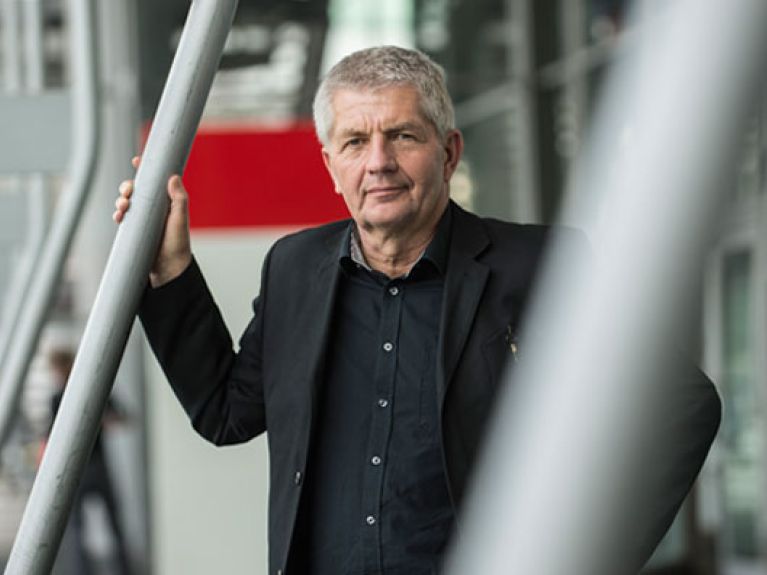A dictatorship can be overcome
The Federal Commissioner for the Records of the State Security Service of the former GDR talks about education and reconciliation.

Mr Jahn, Germans seem as interested as ever in the Stasi files, even 25 years after reunification. Why?
Many people needed a certain distance before they were able to overcome their fears; older people in particular now have a desire to order their lives and are taking a look at the files for this reason. One senses time and time again that there are wounds which have yet to heal even to this day, but people also have a desire to come to terms with their lives or to find a way of reconciling themselves with those with whom they were in conflict. The basis for reconciliation is education and information, and that is what we offer and promote. It is only possible to forgive someone one actually knows, and to forgive something one actually knows about. Another key aspect is that a dialogue takes place between the generations. Grandchildren born after the end of Germany’s division ask their grandparents what life was like back then, thereby challenging their grandparents to reflect. The secret police files are helpful in promoting dialogue between the generations.
You expressly welcomed the decision of the Bundestag to establish an expert commission to assess the future of your agency. Which tasks do you regard as central?
One important point is digitisation. A first step towards this is for example an online media library that we began setting up in early 2015. Our aim is to provide easy access so that young people in particular can read Stasi files via their usual channels. Our structures must ensure that the files are available long-term for personal use as well as for research and education. We will be very interested to hear the expert commission’s proposals. Other questions include where in Germany the Stasi files should be stored in future, how to guarantee that they are easily accessible to ordinary people, and how to ensure that the storage locations are embedded within the existing landscape of commemorative sites and archives. In other words, we have reached a point at which we can guarantee that future generations will also be able to take advantage of this special archive.
What relevance does your work have in an international context?
There is considerable worldwide interest in our work. 1990 was the first time that secret police files had ever been secured and made accessible. In this sense we serve as a role model. Inevitably, similar institutions were established in eastern European countries that were formerly under communist dictatorships. We work together with these institutions – in Poland, the Czech Republic, Hungary and other countries – in a network, and we also meet for an annual conference. We also have many guests from all over the world, however. In 2014, people visited us from over 40 different countries – from countries which have likewise experienced social upheaval, such as those in the Arab world, but also from Belarus and China. Visitors are impressed by the message our work conveys: namely that a dictatorship can be overcome. They also wish to learn from us how to come to terms with a dictatorship. This international interest in particular shows that our work touches upon fundamental values. A universal striving for human rights is the bridge that links us to our international guests. We realise during this exchange how much we can benefit both today and in the future from looking back into the past.
In the spring of 2015, you visited Jena for a programme on Deutschlandradio. A lot has changed there as a result of reunification – given that Jena is your home town, and that were born there, what do these changes mean to you?
I am delighted to see that conditions exist there now which we only ever dreamt of, namely that people are free and able to choose how they live their lives. It is something special for me to experience that a new generation is able to study and live in Jena the way we always wished we could back in the GDR.
Interview: Johannes Göbel

